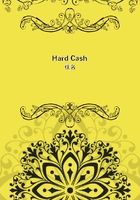
第5章 PROLOGUE(4)
"For shame, mamma! I am glad to hear it: for I scorn a life of frivolity;but then, again, I should not like to give up everything, you know." Mrs.
Dodd looked a little staggered, too, at so vast a scheme of capitulation But "everything" was soon explained to mean balls, concerts, dinner-parties in general, tea-parties without exposition of Scripture, races, and operas, cards, charades, and whatever else amuses society without perceptibly sanctifying it. All these, by Julia's account, Miss Hardie had renounced, and was now denouncing (with the young the latter verb treads on the very heels of the former). "And, you know, she is a district visitor."This climax delivered, Julia stopped short, and awaited the result.
Mrs. Dodd heard it all with quiet disapproval and cool incredulity. She had seen so many young ladies healed of many young enthusiasms by a wedding ring. But, while she was searching diligently in her mine of ladylike English--mine with plenty of water in it, begging her pardon--for expressions to convey inoffensively, and roundabout, her conviction that Miss Hardie was a little, furious simpleton, the post came and swept the subject away in a moment.
Two letters; one from Calcutta, one from Oxford.
They came quietly in upon one salver, and were opened and read with pleasurable interest, but without surprise, or misgiving; and without the slightest foretaste of their grave amid singular consequences.
Rivers deep and broad start from such little springs.
David's letter was of unusual length for him. The main topics were, first, the date and manner of his return home. His ship, a very old one, had been condemned in port: and he was to sail a fine new teak-built vessel, the _Agra,_ as far as the Cape; where her captain, just recovered from a severe illness, would come on board, and convey her and him to England. In future, Dodd was to command one of the Company's large steamers to Alexandria and back.
"It is rather a come-down for a sailor, to go straight ahead like a wheelbarrow in all weathers with a steam-pot and a crew of coalheavers But then I shall not be parted from my sweetheart such long dreary spells as I have been thus twenty years, my dear love: so is it for me to complain?"The second topic was pecuniary; the transfer of their savings from India, where interest was higher than at home, but the capital not so secure.
And the third was ardent and tender expressions of affection for the wife and children he adored. These effusions of the heart had no separate place, except in my somewhat arbitrary analysis of the honest sailor's letter; they were the under current. Mrs. Dodd read part of it out to Julia; in fact all but the money matter: that concerned the heads of the family more immediately; and Cash was a topic her daughter did not understand, nor care about. And when Mrs. Dodd had read it with glistening eyes, she kissed it tenderly, and read it all over again to herself, and then put it into her bosom as naively as a milkmaid in love.